Has Davos outlived its usefulness?
The annual meeting in the Swiss resort will probably gradually recede, just as globalisation and internationalism have, writes Sean O’Grady

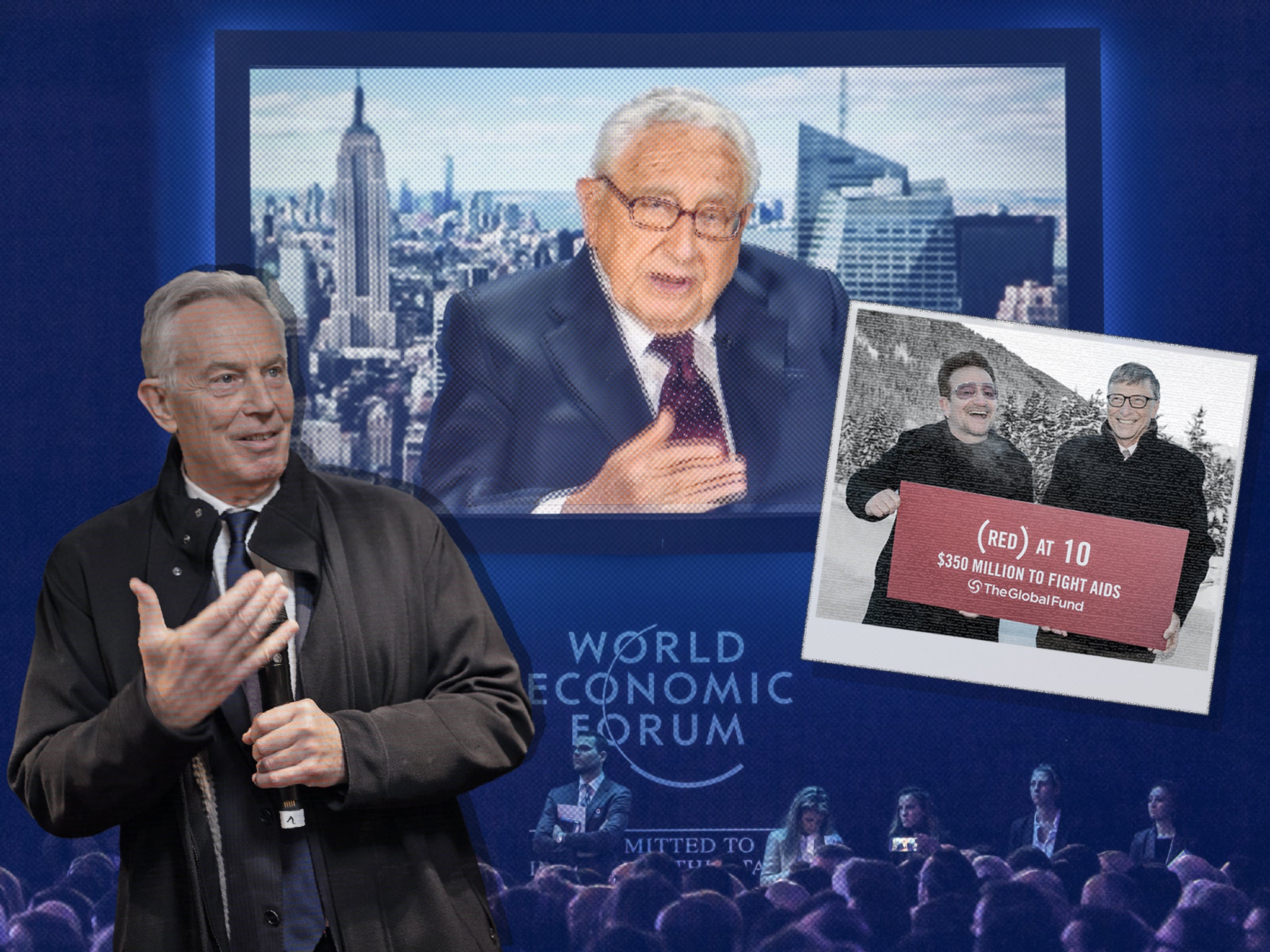
What to do about Davos? There is some reason to think that the great annual World Economic Forum (WEF) shindig in the Alps has served its purpose, and that “Davos Man” – a term that was coined almost two decades ago – is, if not endangered, not quite the force he once was. It’s been well noted that this year there was no sign of Joe Biden, Xi Jinping or Vladimir Putin, and only one serving G7 leader in town (Germany’s Olaf Scholz).
The socialist prime minister of Spain, Pedro Sanchez, made a mildly dissident speech. The keynote address was given by Ursula von der Leyen, who’s not that difficult to book. Gautam Adani – chair of India’s Adani Group and third-richest person in the world – kicked around the cocktail parties and working lunches.
Glitz was supplied by Idris Elba, Jared Kushner and Queen Maxima of the Netherlands. Obviously, Henry Kissinger (via video – he’s nearly 99), Tony Blair and Bill Gates showed up because they always do, and they’re always interesting. For a British audience, there has been some interest in what Boris Johnson is doing there (answer: keeping his profile up and looking vaguely for some nice speaking engagements and the odd light consultancy). Keir Starmer made a speech about Europe.
The hotels and the ski slopes have been full, and the roads clogged with limousines and about 3,000 assorted representatives including media. There is always a strong contingent of billionaires, and for a few days this little Swiss town represented the greatest concentration of wealth on the planet – say around $500bn (£404bn). That’s what I call “levelling up”. Plenty of wealth, then, but power? The glory days feel over.
“Davos Man” as a description of the rich and powerful who show up in this otherwise sleepy and prosperous Swiss ski resort was coined by the late American academic and controversialist Samuel P Huntington. In 2004, Huntington scornfully remarked that “Davos man has little need for national loyalty, view[ing] national boundaries as obstacles that thankfully are vanishing, and see[ing] national governments as residues from the past whose only useful function is to facilitate the elite's global operations".
Fair comment, if less incendiary than the other idea associated with Huntington, the “clash of civilisations” (which was supposed to end in a war between the West and the Muslim world). At the time of Huntington’s attack on the WEF, Davos was very much becoming one of the premier venues to see and be seen by “global leaders”, a burgeoning hotchpotch of corporate executives, academics, particularly economists, politicians, think tankers, charity bosses, bureaucrats, central bankers, bankers, lawyers, a few billionaires and, increasingly, a smattering of showbiz, royalty and Nobel Prize winners. Kissinger still turned up, as he had since the 1970s, but it was Bono who was attracting more attention.
It was, and still is, dominated by Americans, followed by Europeans, but attendees from emerging economies, the Gulf states and the BRICs (Brazil, Russia, India and China) were beginning to make their presence felt in the conference centres and the hotel soirees (Japan, despite its industrial prowess, hasn’t been such a source of high-profile participants).

But in the 2000s, the WEF was still very male – “Davos Man” was the appropriate phrase. It had become glamorous, less exclusive and a sort of conference for globalists; the sort of folk who thought that China and India rejoining the world economy would lift millions out of poverty, boost world trade, deliver cheap goods for Western consumers and generally make everyone better off without making anyone worse off. It felt good, and events proved them correct. Would that the world economy was growing at such a pace now.
At that time, the early 2000s, the pace and promise of globalisation were at their highest. It was regarded as an unalloyed good thing and, what’s more, absolutely inevitable. The disciples of the Third Way, the likes of Bill Clinton and Tony Blair, were Davos regulars, and convinced that they could tame and turn this historic expansion of capitalism to a greater social purpose. It felt good, optimistic and, as Gordon Brown used to say, a new era where the world had learnt to put “boom and bust” behind.
Though the World Economic Forum and its annual January conference in Davos had little to do with any of this – thank the likes of Deng Xiaoping for it. To anyone who cared to look, it felt like the WEF had driven the globalisation movement, in line with its characteristically well-meaning gerundive motto: “Improving the state of the world by engaging business, political, academic, and other leaders of society to shape global, regional and industry agendas.” Its work was done. Or so it seemed to be.
Then came the global financial crisis, and the intrusion of louder voices of the people the economist Joseph Stiglitz (American, economist, policy and Davosiste, naturally) called globalisation’s “discontents”. Over the next few years, banking collapses begat market crashes, begat currency crises, begat sovereign debt crises, begat recessions and unemployment.
Greece went bust (manageable), and Italy seemed not far behind (too big to fail). Not long after that, the populist nationalists arrived to make easy political capital out of the perceived failures of globalisation. It became a dirty word.
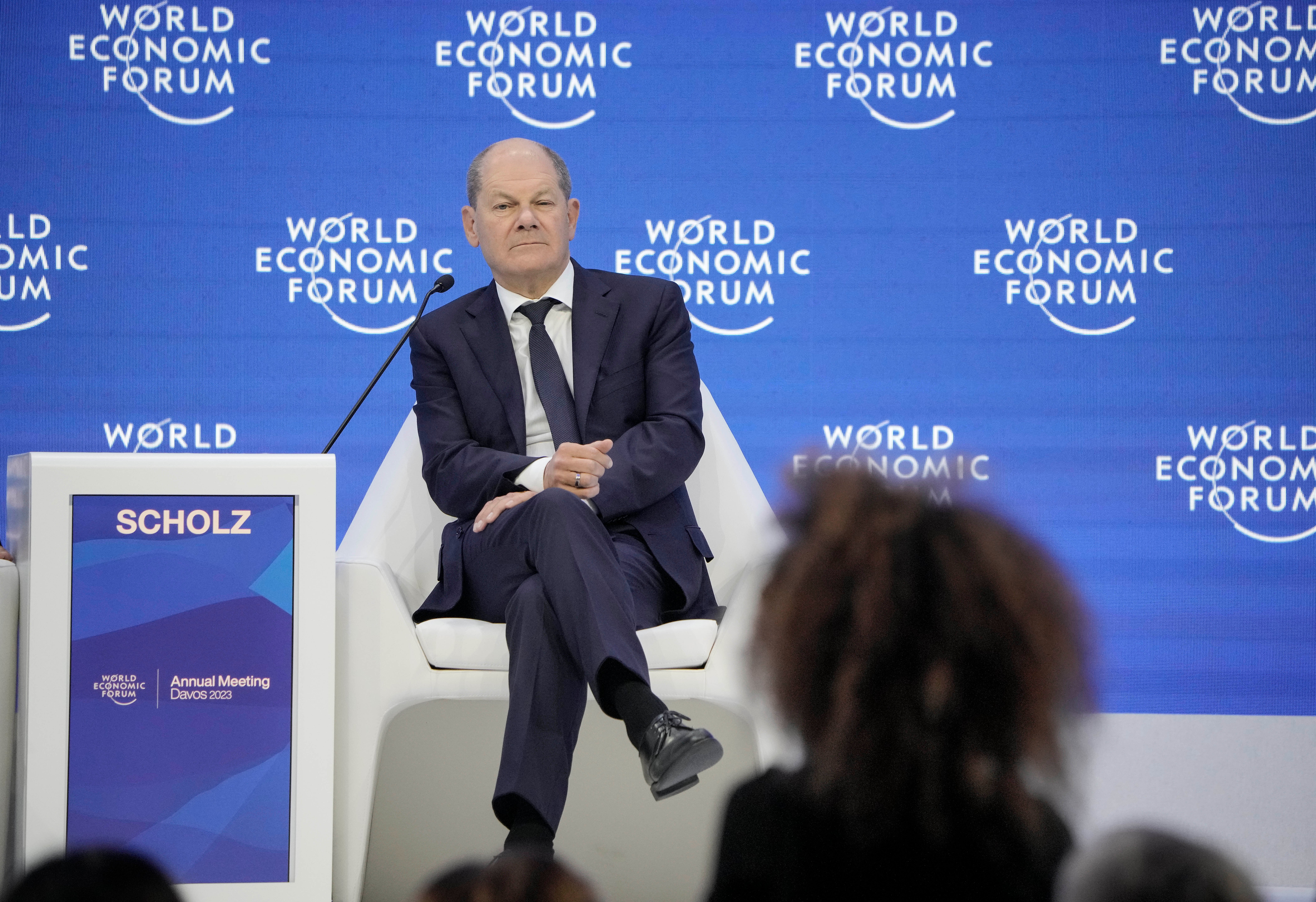
Theresa May, making the most of Brexit, decried the globalists as “citizens of nowhere”. Nigel Farage, Johnson, Putin, Donald Trump, Jair Bolsonaro, Viktor Orban, Narendra Modi, Silvio Berlusconi – the demagogues of the 2010s sprouted from the fertile mulch laid down by the global financial crash and the subsequent recessions and policies of austerity, imposed on uncomprehending peoples. Migration, such a powerful engine of growth, was perceived as an invasive force. Neo-liberal economics and globalisation had failed; why not try protectionism and closed borders?
Ironically, the WEF meetings in 2008 to 2010 assumed greater importance at a time of capitalist crisis precisely because – just for a change – there was a point to high-level discussions between brilliant economists, and the looming global recession demanded international coordinated action to save banks and economies.
Davos had a point but, as a force for globalisation and a symbol of it, there was a feeling – and I witnessed it – that Davos 2009 was a moment when the WEF began to find itself on the wrong side of history. Attendance was down and the mood subdued because some of the American investment banks that used to attend had gone bust. The WEF recovered its composure somewhat in the following decade, but it was never glad confident morning again.
With globalisation in reverse, and with meaningless slogans such as “America First” ruling the world’s largest economy, Davos seemed less relevant. Trump turned up – ironically the first serving president to do since Bill Clinton – but, as with his visits to the United Nations and Nato, only to tell them they were wrong and he was right, and to make some outrageous boasts such as: “We have the greatest economy we’ve ever had in the history of our country. And I’m in Europe today because we’re bringing a lot of other companies into our country with thousands of jobs – millions of jobs, in many cases.” Whatever else he was, Donald J Trump was not “Davos Man”.
At the time of the financial crisis, it was obvious that a global issue merited a global response, but the G7 and G20 meetings were where such policies were finalised by sovereign states.
Some of the ideas may have been canvassed and kicked around at Davos, but not much more. As Stiglitz had already observed, globalisation was really crying out for global governance. As economies traded and invested more with each other, so it followed that they became more interdependent, and that the negative side effects of globalisation needed to be addressed. Some sort of global strategy would have been a good idea; after all, the lack of such a strategy was one reason that things went so wrong in the 1930s and, to an extent, did again in the 2010s.
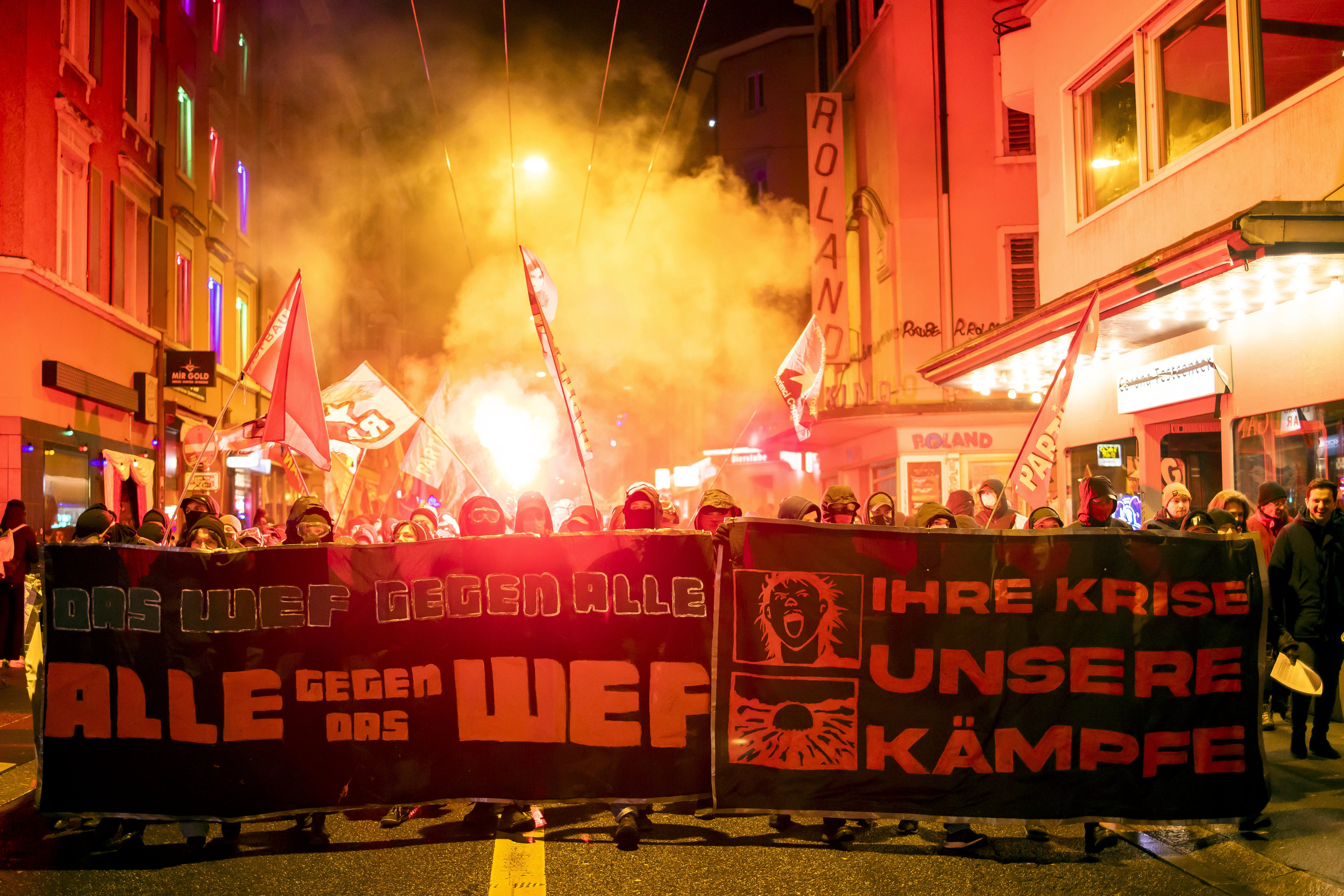
But the world did act, with the WEF playing a small role, through coordinated cuts in interest rates and fiscal stimulus in the short term, thus preventing an even more violent lurch to protectionism. In 2008 to 2010 Davos Man saved the globe, but lost the faith of the voters and forfeited many of the arguments that followed – most dramatically in the UK’s Brexit referendum.
With the great recession and austerity of the early 2010s and the popular rejection of globalisation, it became deeply unwise for a politician to turn up at Davos and be photographed quaffing champagne (quality alcohol being the fuel of choice for Davos Man). Though he is at Davos this year, Boris Johnson (on advice from Dominic Cummings) banned his ministers from attending Davos 2020. Though Sajid Javid defied the ban and turned up anyway – as a globalist-inclined finance minister and former investment banker, the call of the tribe proved irresistible.
Davos was functioning in the way it always did, as a huge talking shop full of some bright people and plenty of intellectual diversions. There was diplomacy to be done in the “margins” – often informally – and intelligence exchanged. There are always business deals to be done, and funds to be bid for. As Johnson once remarked, while he was mayor of London: “You just have to chuck a snowball into a cocktail party at Davos and you’d hit someone with a sovereign wealth fund who would fund a piece of infrastructure.”
But then came Covid-19, which wiped out the physical conference until a comeback in May 2022. The pandemic also put economics firmly behind epidemiology. The sheer scale of the challenge meant that policy virtually wrote itself – furloughs and lockdowns supported by government borrowing and printing money. It just happened without anyone needing to make speeches in Davos calling for it.
Rising Sino-US tensions and the war in Ukraine were further serious blows to the spirit of internationalism and globalisation that used to infuse the Davos gatherings. The climate crisis, too, another Davos staple, was once again forced down the agenda just as it had been during the global financial crisis.
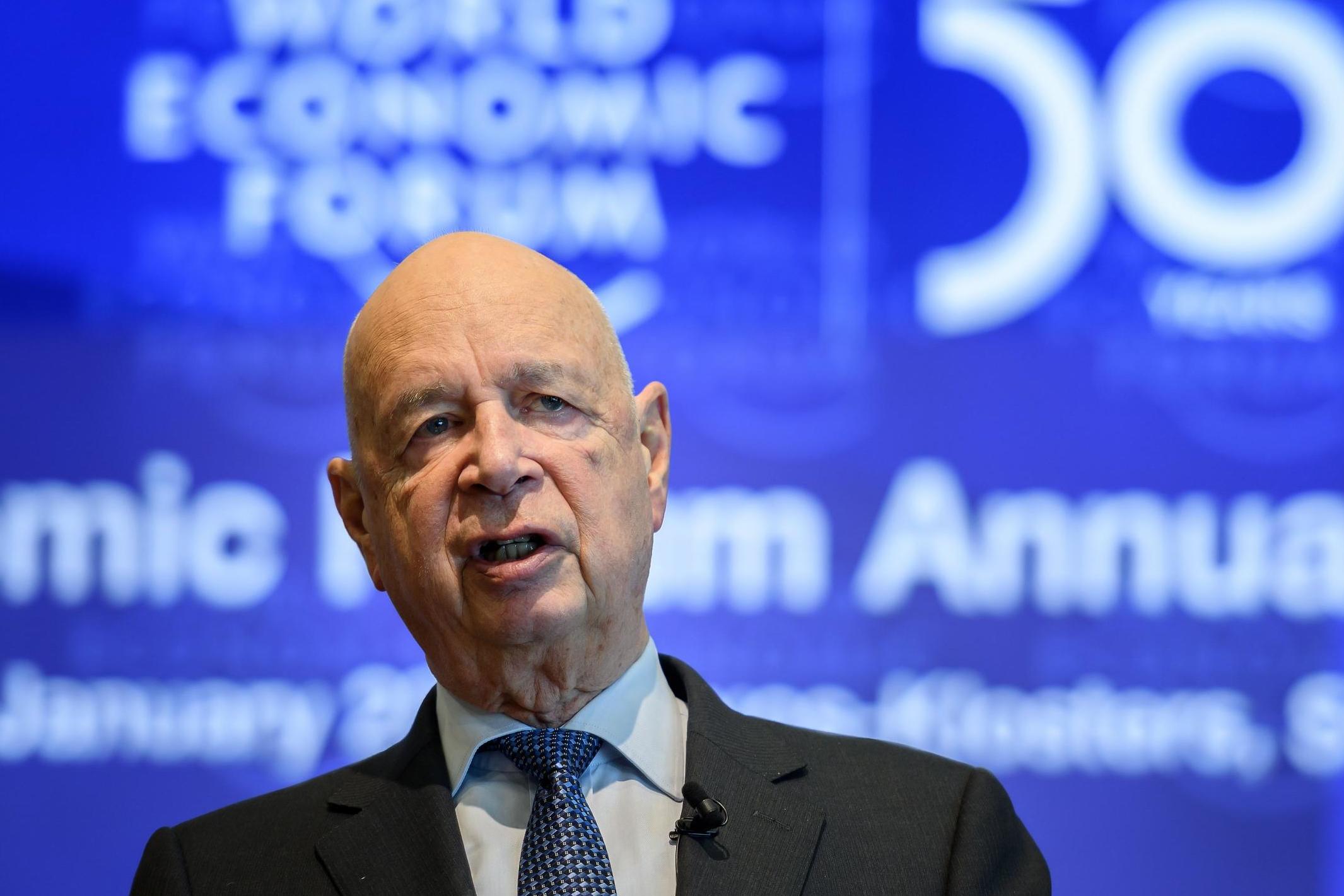
Covid also gave a boost to the conspiracy theorists who grow out of the populist-nationalist movements. Always alert to a shady international conspiracy, the blameless talking shop in the Alps took on a sinister aspect to those who were prepared to believe in such nonsense.
The breezy pie-in-the-sky slogans, ideas and wishful, futuristic pipe dreams that have always stimulated thought experiments among the intelligentsia suddenly sounded like threats – “the great reset”, for example, or the phrase “you will own nothing and you will be happy” uttered by the WEF founder and chair Klaus Schwab.
For now, Schwab remains in control of Davos and has achieved much since he gathered a few dozen European businessmen together in 1971 for a relaxing work-oriented break in the Alps. Originally called the European Management Forum, it gradually evolved into a much broader organisation. It became the World Economic Forum in 1987, just before Deng decided to liberalise and internationalise the Chinese economy, and Mikhail Gorbachev was to bring about the fall of the Berlin Wall, the Eastern bloc and the end of the USSR. It was, some said, the end of history, and certainly was the beginning of a golden age of expansion for the world economy (and for sleepy little Davos).
The WEF, contrary to the fevered nightmares of conspiracy theorists, never had much power; though the organisers say some useful steps in the Middle East peace process and the end of the apartheid era in South Africa took place there. Useful work, as described, was done during various financial crises, and as an opportunity to widen their intellectual and cultural horizons, it probably has some value.
When the ex-Soviet bloc dissolved, it helped the newly free nations learn about modern liberal capitalism (though not all took the lessons home). But if it was as potent as its enemies claim, then the 2008 campaign launched at the WEF by Gordon Brown, Ban Ki-Moon – the then-UN secretary general – Bill Gates and Bono would by now have done the trick.
For what it’s worth, Davos will probably gradually recede just as globalisation, internationalism, medical authority and science have receded – but it will not disappear. It will just go back to what it used to be: more of a symposium about business and economics, and less political. After all, for example, no serving British prime minister attended before Blair, and there’s no pressing reason why they should do so if the conference starts to lose its relevance.
That would be a shame, though, because international dialogue is a valuable thing, and Britain’s interests can be served by collaborating with leaders of other nations and global investors. As a great trading nation, or at least one that depends on exports to make a living, the UK had, and has, much to gain from globalisation.
Whoever ends up succeeding Schwab and running this $300m business would be wise not to make boastful and spurious claims that his “young global leaders” have helped the WEF “penetrate” the cabinet rooms of the world, as Schwab was apparently prone to say. At its best, the WEF can do some good, by encouraging dialogue, helping suggest or find answers to global challenges, and bringing the worst regimes in the world closer to accepting the freedoms that people elsewhere enjoy.
The World Economic Forum could do with some voices from the bottom of the pile being heard, and their discontents and grievances listened to. It might moderate the more alarming-sounding propositions that tumble down from its Olympian heights. In short, the WEF needs to be a more grounded, modest affair. Trouble is, such “masters of the universe” tend not to be modest, grounded people.
Join our commenting forum
Join thought-provoking conversations, follow other Independent readers and see their replies
Comments




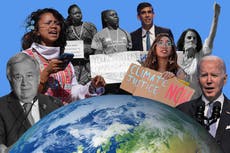
Bookmark popover
Removed from bookmarks